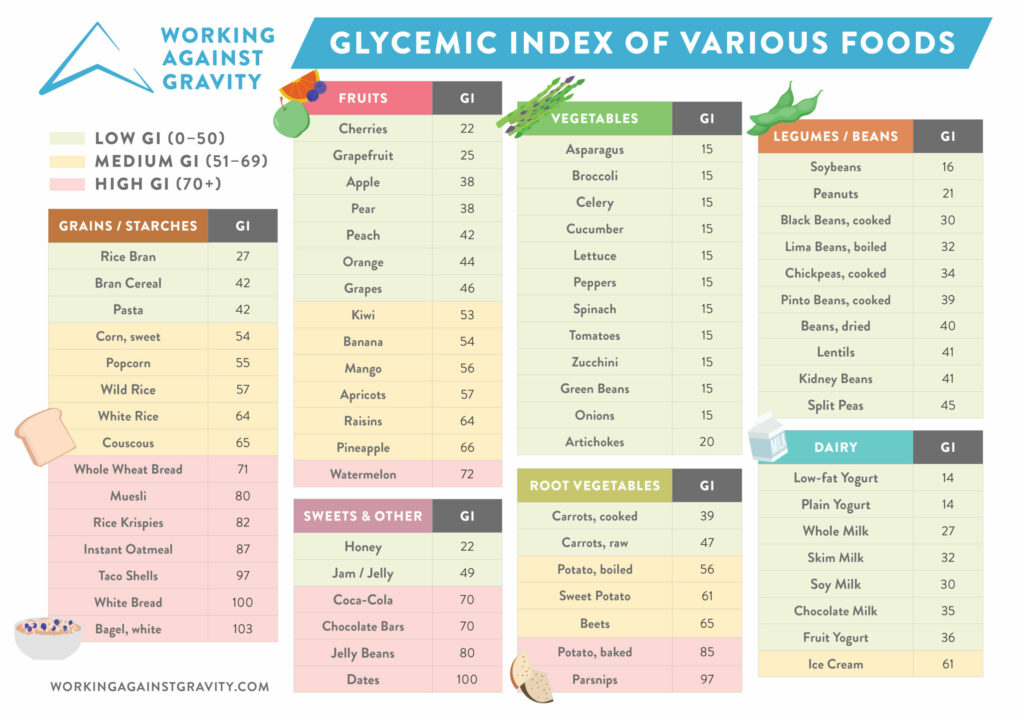Food timing has been debated for a long time. But is it actually that important?
In this blog post I will talk about the importance of food timing and give you tips to improve your performance in and outside of the gym.
When should I eat before exercising?
I’ve had conversations with many of my clients regarding food timing. However, usually the conversation is about eating something at all, rather than considering a definite timeframe.
The goal is to have a good amount of energy, so that you could perform everything properly, and not become fatigued after the first couple of exercises. Therefore, eating before a workout is essential.
If you have certain endurance/muscle/strength gaining goals, it is equally important to know what and when to eat after a workout.
So let’s look at it in more detail.
Pre-workout
It is recommended that exercisers consume about 1g of carbs per kg of body weight 1h before working out, and 2g of carbs per kg of body weight 2h before exercise, and so on (Dunford & Doyle 2008). The amounts could seem quite large. For someone with 60kg bodyweight it would mean eating around 220g of cooked rice 1h before a workout. Or opt for 2 large bananas. Here though, the speed at which the carbs are digested differs.

If you have less time before a workout, choose something that is digested faster. Meanwhile, if you have more time, go for lower GI foods.
If you are someone who likes to workout in the morning, right after waking up, I would suggest having a fruit or muesli with a bit of milk. This will give you a quickly enough digestable energy source for the workout ahead. And of course, drink some water before, during and after exercising.
For those who train later in the day, it would be advisable to have a proper meal approx. 2-3h before your training session. By proper meal I mean breakfast/lunch/dinner – meals that incorporate vegetables (or fruits), meat or plant based protein source, and carbohydrates like whole grains, potatoes, etc. If you are having a smaller meal, you can probably get on with your training already an hour after eating. Basically, you have to follow your gut – train when you don’t feel full and heavy anymore, but you are not yet hungry.
During a workout
For those who train on an advanced level for longer periods of time, it can beneficial to have some energy sources also during exercise. Maltodextrin and similar products can be added to a shaker, providing continuous energy source during your training. There are also gels and energy bars that are especially useful for long distance edurance training (marathon, ultras, triathlon, etc). If you think you could benefit from these type of supplements, check in with your doctor first. These products are not suitable for people with diabetes or celiac disease. There are alternatives available, if you absolutely want to have an energy shaker, or your are having very intense workouts.
Post-workout
After a workout, it is a good idea to replenish the body’s energy reserves (with carbs). If you have done some strength training, it is also necessary to eat some good protein, to help with muscle building and reparation.
The amount of food you eat after a workout shouldn’t be big. However, if you have worked out before breakfast, lunch or dinner – great – go for it! It makes things less complicated, meaning, you don’t have to think about an extra snack.
Here are some simple post-workout snack options:
-
- cottage cheese (protein) with some fruit (carbs) and honey (carbs),
-
- a handful of rice (carbs) with chicken (protein),
-
- eggs (protein) on toast (carbs),
-
- porridge with egg, banana and fresh or frozen fruits.
-
- a fruit smoothie with protein powder, etc.
And of course – water. During workouts we tend to sweat, so we have replenish the water reserves and also electrolytes. If your post-workouts meal is savory, just drinking water would be enough. Howerver, if you have had a long and sweaty workout, you might want to consider a special electrolyte drink or mineral water.
The recommendation for rapidly replenishing glycogen (energy) stores is to take in foods providing 1-1.5 g of carbs per kg of body weight within 30 min of extended exercise (Smith & Collene 2015). When it comes to protein, it is advisable to consume 15-25 g of protein within 1h after exercise, which can maximize the muscle rebuilding and repair process (Rosenbloom & Coleman 2012).
The harder you train, the more you would want to eat right after training. Meanwhile, if you train at home and/or it is not a very long or tiring workout, keeping to your normal meal timing could be sufficient.
Takeaway
I could make tons of suggestions regarding food timing and performance, but at the end of the day, the choice is yours.
If you feel better working out in a fasted state, do it, but try to replenish the reserves afterwards.
If you don’t have time or opportunity to have a good post-workout snack, just make sure you have a balanced meal once you get to have it.
It all depends on your priorities and goals.
Changing eating habits always take time, but it is a good idea to reconsider them when you start exercising. The better you will take care and fuel your body, the better will be the outcome. No matter if it is a muscle gaining on fat losing goal. In both cases, good food is the main ingredient. And you probably are not having enough of it (this just gave me an idea of another post! 
Stay healthy and stay strong!
If you have any additional questions, feel free to contact me here!
References:
Dunford, M., & Doyle, A. 2008. Nutrition for Sport and Exercise (2nd ed.). Boston: Wadsworth Publishing.
Smith, A.M., & Collene, A.L. 2015. Wardlaw’s Contemporary Nutrition (10th ed.). New York: Morgan-Hill.